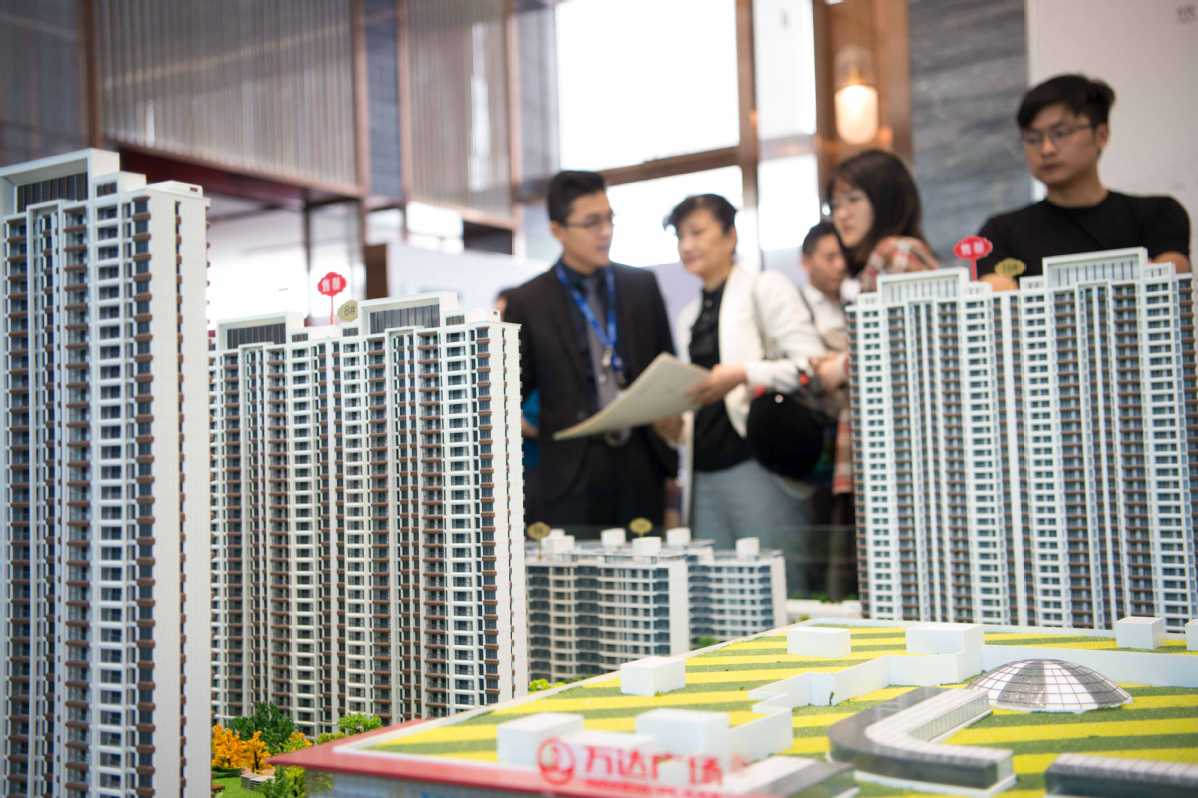Impact of coronavirus on real estate market will not ‘last long’
By CHEN MEILING | China Daily
Updated: Feb 1, 2020

The Chinese real estate market is expected to see pressure from sales in the short term this year as the novel coronavirus outbreak has curbed demand and offline sales, although the impact is not likely to last over the long term, industry experts said.
The Spring Festival holiday is traditionally a warm-up season for housing, especially in third-and fourth-tier cities, as some buyers who cannot afford a house in big cities where they work may turn to their hometown instead. Real estate companies often offer discounts and promotional deals to boost sales at this time.
However, the contagious disease, which had infected 9,692 people and claimed 213 lives on the Chinese mainland as of early Friday, has restrained demand and reduced economic activities like consumption and investment, said Liang Qidong, vice-president of the Liaoning Provincial Academy of Social Sciences.
Housing sales from migrant professionals and workers during this period will see a significant drop and the warm season may be postponed to the second quarter of this year, Zhang Bo, chief analyst of Anjuke, a Chinese property portal, told the National Business Daily.
Selling and marketing activities have also declined.
The China Real Estate Association proposed on Jan 26 that property operators suspend business at their offline sales offices in order to prevent human-to-human transmission and contain the further spread of the virus.
So far, more than 50 cities have answered the call, including Wuhan, the epicenter of the outbreak. The other cities include Guangzhou, Hangzhou, Chengdu and Nanjing, data from the China Index Academy showed.
About 30 provincial-level regions in the country have activated their first-level emergency response to the novel coronavirus outbreak. The suspension of group activities is a method taken by many local governments.
Real estate brands such as Country Garden, Sino-Ocean, China Jinmao, Vanke and Yuexiu have also announced the closure of their sales offices in some cities.
Liu Bo, an analyst with consultancy Roland Berger, said in the short term, the prevention and control of the outbreak would influence construction and sales of real estate projects. It would also pose challenges for property companies that rely on a high turnover rate.
“Besides, top companies may choose to give deep discounts to boost sales, which will squeeze the market space for small-and medium-sized companies,” he added.
More property operators such as China Fortune Land Development, Sunac China and Yango have turned to online marketing channels like WeChat mini-programs so that clients can see the floor plan, photos and learn details through phone or online consulting services.
Yan Yuejin, research director at the E-house China R&D Institute, said the measure helps prevent the gathering of people and make marketing more flexible.
He added, though, that the main factor to influence the development of property market has not changed, but the temporary closures would not have a big impact on full-year sales.
Yingda Securities Chief Economist Li Daxiao said as the prevention and control of the novel coronavirus have entered a key period, their impact on some business activities is inevitable.
But the economist pointed out that the “adjustment of policies, as well as the steady recovery of housing sales and prices, can also be expected”.
Ji Wei, a founding managing partner of Meridian Capital, said as the outbreak has raised concerns about health and safety, industries that rely on offline interactions will be more affected in terms of revenue and cash flow.
She suggests companies adjust policies toward human resources, business focus and marketing methods to reduce the impact to a minimum.












